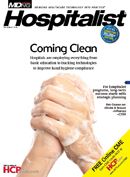Influenza
//The Educated PatientFlu Information for People with Health Conditions
Pretty much every major health and government organization—including the Department of Health & Human Services, FDA, and National Institutes of Health—provides content for Flu.gov, giving it a whole lot of credibility. This particular page is devoted to people with conditions such as asthma, arthritis or lupus, diabetes, cancer, HIV/AIDS, heart or kidney disease, or morbid obesity, who “may face special medical challenges during flu season.” Visitors can learn about the serious complications that may result from influenza; the six steps that patients with chronic medical conditions should take during a flu outbreak; when these patients should get vaccinated; what preventative actions they can take; and what to do if they get the flu. Also included is a link to the Flu Finder, and a podcast from the CDC entitled, “High Risk Groups Should Prioritize to Immunize.”
//Medical WebsitesInfluenza Prevention & Management
At this site from the Alliance Working for Antibiotic Resistance Education—a partnership that includes physician organizations, health care providers, and health systems, among other entities—health care professionals can find recommendations for influenza vaccination from the Advisory Committee on Immunization Practices and the CDC. Visit this site to download treatment and prescribing guidelines specific to both adults and children; learn about the provider’s “vital role in decreasing influenza”; obtain information on antiviral therapy; learn how providers can protect themselves against influenza; and download patient education materials and a prescription pad that lists over-the-counter treatments.
//Online CMEA 2010 Clinician’s Guide to Influenza & Vaccination ProtocolsCredits: 1.00
Fee: None
Expires: March 31, 2013
Multimedia: Audio/Slides
In this activity, Lorry Glen Rubin, MD, chief of pediatric infectious diseases at Schneider Children’s Hospital of the North Shore-Long Island Jewish Health System, provides answers to fundamental questions about novel H1N1, information regarding the importance of both seasonal and novel influenza vaccination, vaccine recommendations for healthcare workers beyond influenza, and a brief overview of the Statewide Immunization Registry.
Preventing Influenza in School-aged Children: Evidence-based Decision Making on Universal VaccinationCredits: 1.50
Fee: None
Expires: March 31, 2012
Multimedia: Audio/Video
In this archived webcast of a symposium held during the World Society for Pediatric Infectious Diseases’ 6th World Congress, Edwin J. Asturias, MD, of Johns Hopkins University and colleagues discuss the burden of influenza on individuals. Listen as the presenters identify goals and strategies for vaccination policies in response to anticipated influenza outbreaks, and discuss the importance of vaccinating school aged children to minimize the impact of influenza and decrease the risk for potential epidemics.
//Clinical TrialsCharacteristics and Outcomes of Intensive Care Unit Patients Admitted with Novel H1N1 Influenza or Seasonal InfluenzaStudy Type: Observational
Age/Gender Requirements: 12 years (male/female)
Sponsor: Virginia Commonwealth University
Purpose: Researchers will collect information from patients who are infected with either the novel H1N1 or the seasonal flu to determine what makes patients critically ill with these infections; the data will then be used to develop a registry that will aid investigators in determining specific markers that lead to development of severe illness.
Pharma FocusFluzone (Influenza virus vaccine)
//Medical WebsitesVaccinePlace.com
This section of Fluzone.com provides information for health care professionals about the vaccine, which is indicated for active immunization in patients 6 months of age and older against influenza disease caused by influenza virus subtypes A and type B contained in the vaccine. Here, providers can download educational materials—including “A Parent’s Guide to Vaccine-preventable Diseases for Children,” obtain coding and reimbursement support, access dosing guidelines for Fluzone for patients six months through nine years of age, and order the vaccine. Also included is a tool that lets providers calculate how many doses of Fluzone their practice will need.
